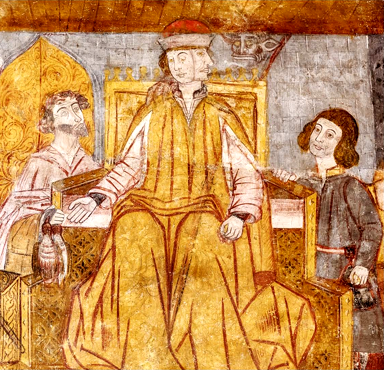This week’s parsha contains the famous commandment: “Justice, justice are you to pursue, in order that you may live.” You may have seen it on the walls of courthouse buildings.
The parsha begins with instructions to judges and officials, that they are to judge people fairly and equitably. They are not to refuse to judge a case, nor give any special recognition to anyone. They are not to take bribes “for a bribe blinds the eyes of the wise.” If any legal matter is too hard for the judge, the judge must take it to the Levitical priests to decide.
Much of the parsha is taken up with commandments against worshipping gods other than God. Don’t raise a standing stone. Don’t eat animals that have a defect. Stone to death the person who is found to be worshipping false gods – but only if you can find two or more witnesses to this idolatrous act.
If, when the Israelites enter the land that God is giving them, they decide they want a king, they can set a king over them that God chooses. But the king is not to sell people to Egypt in order to collect war horses. Nor is he to take many wives. Nor is he to pile up gold and silver.
When the king ascends to the throne, he is to make for himself a copy of this instruction and these laws so that he can observe them and not feel himself raised up above everyone else.
The Levites are not to get any land. Instead, they get parts of all the slaughter offerings of oxen or sheep, some grain, some wine and some oil. “For God has chosen the Levite to attend to the name of God forever.”
Food for Thought
What do you think justice consists of?

